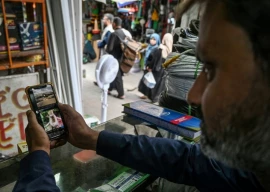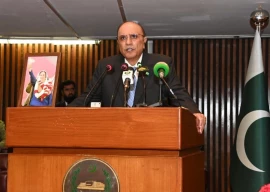
Pakistan’s adoration for gold is well known. But do you have any idea how much we adore it? Unfortunately, we do not have any answer as Pakistan’s market infrastructure for buying and selling gold is not fully regulated. Pakistan was formally added to the FATF’s grey list in June 2018. It was the time when the country made a high-level political pledge to collaborate with the FATF and its wing, the Asia Pacific Group (APG), to brace its Anti-Money Laundering/Combating Terror Financing regime and address its strategic counter-terrorist financing-related deficiencies. Since then, the FATF has consistently pushed Pakistan to mitigate the risk of money laundering and terrorist financing through informal sectors such as the gold trade.
Regardless of where gold ultimately ends up, it perpetually remains in the world once mined, making it a more valuable and safer asset for investors. Gold reserves in developed economies continue to grow at a rapid pace. The latest report of the World Gold Council, the US has the world’s most incredible stockpile of gold reserves (8,133.46 tonnes), equalling those of Germany, Italy, and France combined. However, Pakistan’s gold reserves remained constant at 64.65 tonnes in the second quarter of 2021, unchanged from 64.65 tonnes in the first quarter of 2021.
The FBR has set up a board to oversee the deficiencies in the gold market, but it has been unsuccessful in regulating the millions of dollars in informal gold trade that occurs through the taxation of jewellers. In an interview with Arab News on 7th July 2021, Haroon Rasheed Chand, President of the All Sindh Sarrafa Jewellers Association, raised a voice against the FBR’s decision to record the gold market, claiming that it would result in harassment and a restriction of their operations unless a more comprehensive effort was made to digitalise the entire economy concurrently. “Jewellers are willing to work with the government to remove the country’s name from the FATF’s grey list, but authorities should refrain from requiring small gold businesses to register for sales tax, as this will have a detrimental effect on their business,” he claimed.
I believe this is a flimsy argument that small gold traders should not be taxed. Government should apply a flat taxation system across the gold market of Pakistan. Everyone should be held accountable, and none — whether a small or a big dealer — should be burdened unfairly. The FBR, on the other hand, has an obligation to ensure that designated non-financial businesses and professions (DNFBPs), such as dealers in precious metals and stones, should comply with their anti-money laundering and counter-terrorist financing obligations under the Anti-Money Laundering Act. Millions of rupees in black money can be easily converted into gold and stored anywhere without the need for legal ownership.
Federal and provincial governments should take aggressive steps to regulate the gold sector, not just to comply with FATF standards but also to expand the country’s tax base. In addition, the FBR must design workshops where they educate the public about the features of gold. The various rare qualities of gold — like it can be moulded and carved, has the ability to conduct electricity, and does not tarnish — make it the metal of choice for various industries. Regrettably, there is only one metal exchange in Pakistan — that too is in its early stages of development. As a result, the public purchases gold in physical form, and is unaware of other ways to acquire it indirectly, such as through futures contracts, gold exchange-traded funds (ETFs), and mutual funds. An ETF has an advantage over bullion in that it may be sold for cash at the market price. You can sell the fund at any time the market is open, just like stocks. So gold ETFs are more liquid than gold and can be traded from home.
Published in The Express Tribune, October 27th, 2021.
Like Opinion & Editorial on Facebook, follow @ETOpEd on Twitter to receive all updates on all our daily pieces.




















































COMMENTS
Comments are moderated and generally will be posted if they are on-topic and not abusive.
For more information, please see our Comments FAQ